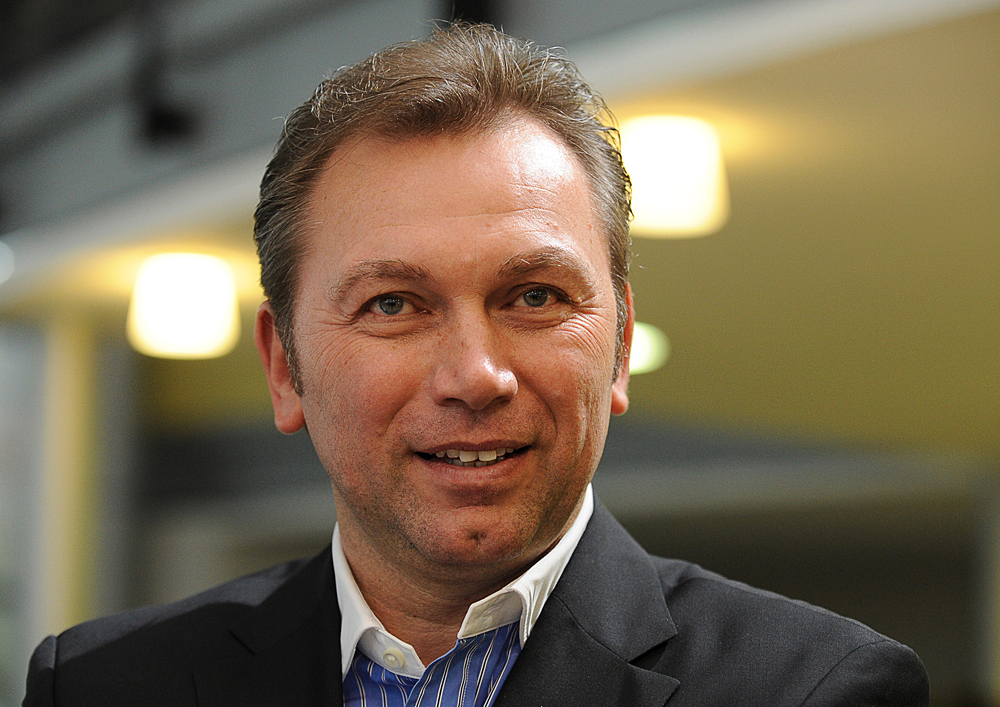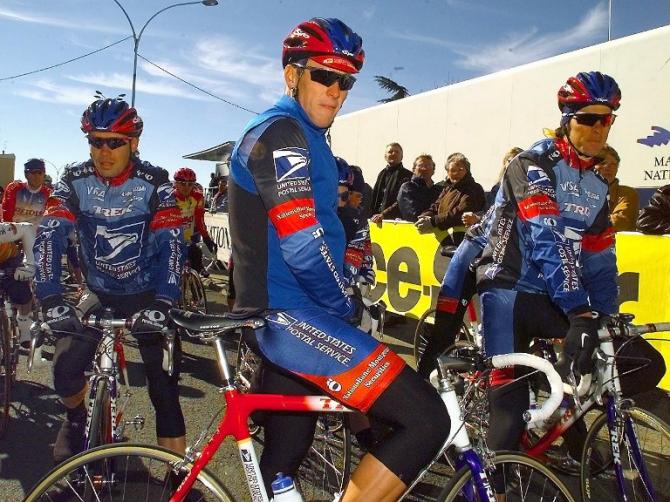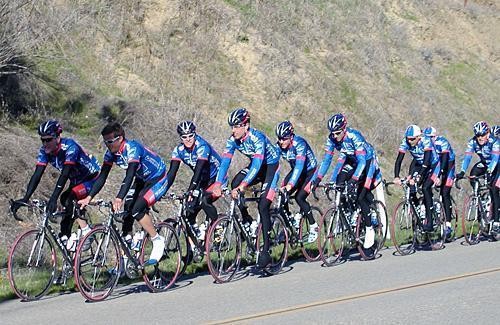Lifetime ban reduced for former USPS doctor Del Moral
Spaniard given five year ban after 'truthful' testimony in CAS hearing against Bruyneel




The United States Anti-Doping Agency (USADA) wrapped up six years of wrangling over the anti-doping violations by Lance Armstrong's US Postal Service teams, reducing a lifetime ban for Spanish physician Dr Luis Garcia del Moral to just five years for his cooperation in a case against former manager Johan Bruyneel.
USADA requests Hamilton and others as witnesses in Bruyneel case
Johan Bruyneel handed 10 year ban by American Arbitration Association
WADA wants longer bans for Bruyneel and associates
Frankie Andreu: Did USADA's Reasoned Decision help cycling?
Leinders handed lifetime ban by USADA for doping offences
Bruyneel ordered to pay US government $1.2m in Lance Armstrong case
Bruyneel banned for life by CAS, says 'we were children of our era'
CAS says Bruyneel was 'at the apex of a multitude of doping violations'
USADA announced the reduction on Friday, which came as the result of an agreement with del Moral to give truthful testimony in an appeal by the World Anti-Doping Agency's (WADA) of USADA's decision to impose a 10-year ban on Bruyneel.
The Court of Arbitration for Sport decided this week that the suspension was not sufficient, and issued a lifetime ban on the Belgian's involvement in sports, in part due to Del Moral's statements that Bruyneel was involved in doping riders.
USADA CEO Travis Tygart hailed the decision, claiming that Bruyneel and his fellow litigants Dr. Pedro Celaya and trainer Jose Martí "pulled out every trick to avoid the truth" and "continued, even at the hearing and even in the face of overwhelming evidence to the contrary, to present a false narrative."
The anti-doping case began in 2010 with emails sent by former team member Floyd Landis, who brought the team's doping activities to the attention of USA Cycling and the UCI. Lance Armstrong was the subject of a subsequent federal investigation into the allegations, but the inquiry was closed without indictment.
USADA picked up where the feds left off, obtaining witness statements from numerous former riders, including anti-doping rule violation confessions from Michael Barry, Tom Danielson, Tyler Hamilton, George Hincapie, Levi Leipheimer, Christian Vande Velde and David Zabriskie - all of whom received lenient six-month, off-season suspensions for their cooperation in October, 2012.
Lance Armstrong chose not to contest the lifetime ban that USADA imposed, and went on to admit to doping in 2013. He recently settled with the US Government for $5 million over a False Claims Act suit brought by Landis because of the doping activities in the team while sponsored by the US Postal Service.
The latest race content, interviews, features, reviews and expert buying guides, direct to your inbox!
Although by his own admission, del Moral was directly involved in obtaining, distributing and administering prohibited substances to riders throughout his four-year term with the USPS team, del Moral's cooperation helped to counter Bruyneel's assertions that he was aware of the doping and accepted responsibility, but that he was not actively involved in doping riders.
Del Moral provided email evidence from 2003 demonstrating Bruyneel's "pivotal role in orchestrating the complicated logistics necessary to ensure that the riders, doctors and 'equipment' were in the right place at the right time for the teams' doping activities", according to the CAS decision.
Bruyneel chose not to be re-examined following the testimony of del Moral.
Del Moral said that he wanted to give the testimony in order to clear his name, saying that what he did was wrong but that at the time "it wasn't frowned upon". He hopes to be able to continue to practice sports medicine.
In addition to the lifetime bans for Armstrong, Bruyneel and team doctor Pedro Celaya, and the now five-year ban for del Moral, team trainer Jose Martí Martí was given a 15-year ban, and Italian trainer Michele Ferrari was banned for life and given an 18-month suspended jail sentence in an Italian civil trial.
Bruyneel doping admissions
In an open letter after the CAS verdict, Bruyneel expressed his regrets for "certain actions" during his time in the sport, saying, "Without going into details in this letter, I would simply like to observe that we were all children of our era, facing the pitfalls and temptations that were part of the culture at the time. We didn't always make the best choices."
In the CAS verdict, Bruyneel testified that he first learned of doping in cycling at the 1987 Tour du Limousin (before he turned professional), that doping at that time was discussed openly and without taboo. He began taking corticosteroids and testosterone in 1988. By 1990, he testified "that members of his team were not performing well in various races because other teams were using a new drug, namely EPO", the verdict states.
At the time, Bruyneel was on the Lotto team, but moved to the Spanish ONCE team in 1992. During the 1995 season, he began taking EPO and tried human Growth Hormone (hGH), but saw no effect. That year he took third overall in the Vuelta a Espana and won a stage of the Tour de France.
He then moved to Rabobank, where he testified that Dr. Geert Leinders introduced him to blood transfusions. Bruyneel retired in 1997, then moved on to be directeur sportif for the USPS team, saying that before he joined that team, riders were already monitoring their hematocrit to not fall afoul of the UCI's 50% rule.
He "vigorously denied" being the "ringmaster" of the doping in the team, and denied that he "developed, managed and concealed one of the most sophisticated and extensive team doping programs in sports history", as WADA charged. Bruyneel said that it was each riders' choice to dope or not, and that he was not involved in those decisions.
Del Moral said that Bruyneel "chose the riders for doping on the basis of trust. The rider needed to be a trustful person, i.e. a rider who would stay silent, had longer contracts with the team and had good potential for performance," according to the CAS decision.
